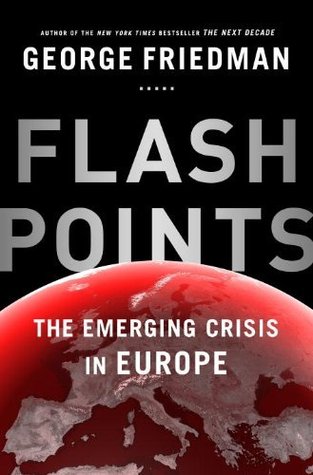More on this book
Community
Kindle Notes & Highlights
Read between
September 9 - October 31, 2019
Britain was one of the victors in World War II, which in the minds of the British allowed them to continue as they were. They did not accept that their empire was gone or that basic British strategy had become irrelevant.
Britain could not accept being reduced to a power on the level of France or Germany, both defeated nations.
The desire for sovereignty was widespread, but it was most intense in Britain, which had, after all, won the war and didn’t think of itself as another European nation. Even as it became obvious to the British that their empire would not survive, they still wanted to limit their involvement in Europe. The foundation of British foreign policy was that safety lay in balancing competing powers in Europe. Alternatively, they saw themselves as balancing between the two superpowers.
He was quite content to let the British stay outside the peninsula’s politics. Britain’s exclusion allowed France more room for maneuver. Binding Germany and France together forced the rest of Western Europe to align with this core group.
The EFTA really marked the last attempt by Britain to try to be a leader of Europe.
In 1991 the underlying radicalism of the project emerged formally at the same time that the Cold War ended and the American hand that had shaped the EC’s development, particularly at its inception, was no longer significant.
It sought to render national identity as an ethnic distinction within a common European culture. This was an enormous step. Interestingly, this also happened in the American Civil War. Americans went into the war thinking of themselves in terms of their states and emerged a single nation, forged in blood. But that would be difficult to accomplish in Europe. First, nothing could be forged in blood in a continental union built on the idea of peace and prosperity. Second, the differences between American states had to do not with things that are difficult to change, like language or culture, but
...more
Forging a multinational state out of the mélange of nation-states was beyond the ability of Europe at that time.
Things that happened long ago are more real than things that are here now.
The European sensibility is not that of an American. Americans are obsessed with the future. The past appears trivial.
back and forth, encompassing these countries and then releasing them. Sometimes Russia has moved deeper into the peninsula—during the Cold War to the center of Germany. But no country on the peninsula has permanently held territory in Russia. Those who tried, like Napoleon and Hitler, were destroyed.
Britain is no longer a decisive force and no longer gets to demand neutrality in the eastern exit to the English Channel.
in Europe, where the stranger remains the stranger because of where he was born, not because of bad manners.
When the coast guard on an island surrounded by sea traffic takes a break from listening for Mayday calls, you aren’t in Europe anymore.
The British clinging to their culture as if it were natural law seemed provincial, the behavior of a barbarian, but it created a fabric of rules that not only bound them together but also helped reshape their colonies in their own image.
They want permanent peace and prosperity. They want to retain their national sovereignty, but they do not want these sovereign states to fully exercise their sovereignty. They want to be one people, but they do not want to share each other’s fate. They want to speak their own language, but they don’t believe that this will be a bar to complete mutual understanding. They want to triumph, but they don’t want to risk. They want to be completely secure, but they don’t wish to defend themselves.


